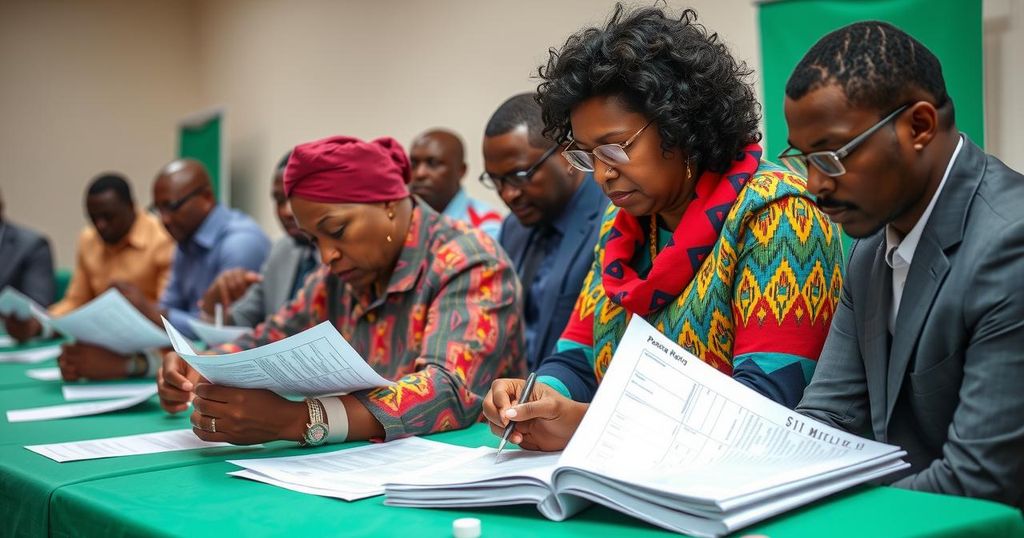Namibian opposition parties IPC and LPM won the right to inspect electoral materials following the recent elections, where SWAPO retained control amid allegations of voter suppression. Critics argue that logistical issues did not impact results. Legal challenges loom as opposition seeks evidence to contest the election’s legitimacy.
In a significant ruling, Namibia’s Electoral Court granted two opposition parties, the Independent Patriots for Change (IPC) and the Landless People’s Movement (LPM), the right to inspect electoral materials from the recent presidential and legislative elections. This decision follows the parties’ rejection of the election results that allowed the ruling SWAPO party to maintain control of parliament, albeit with a diminished majority. The opposition is seeking to uncover potential voting irregularities, particularly claims of suppressed voter turnout due to inadequate ballot paper supplies.
Despite accusations of irregularities from the opposition, critics maintain that these issues were primarily logistical and unlikely to have impacted the election’s overall outcome. John Nakuta, a respected human rights lawyer and academic, elaborated on the IPC and LPM’s intentions, suggesting they aim to gather evidence to support their claims of electoral misconduct, which could lead to legal actions to nullify the results.
Following the court ruling, IPC spokesperson Imms Nashinge emphasized that this was merely a preliminary step in their broader legal challenge, asserting their decisions and actions reflect a deep commitment to upholding democratic values. Concurrently, the Electoral Commission expressed its willingness to cooperate, citing prior agreements to facilitate inspections. Additionally, the commission’s spokesperson, De Wet Siluka, remarked on the opposition parties’ failure to adequately monitor the election process, suggesting it undermines their current objections. With 22 parties contesting the elections, SWAPO secured a majority in the National Assembly, which complicates the opposition’s position as they proceed with their legal inquiries.
The recent presidential and legislative elections in Namibia have come under scrutiny following allegations of irregularities by opposition parties. The long-dominant SWAPO party, despite a reduced majority, secured reelection, prompting the IPC and LPM to challenge the results. Issues raised include suppressed voter turnout in areas due to insufficient ballot papers, leading the opposition to seek legal redress through inspections of electoral materials. Such actions are part of broader concerns about electoral integrity in Namibia’s democratic processes.
The ruling by Namibia’s Electoral Court enabling opposition parties to inspect election materials signifies a crucial step towards addressing claims of irregularities in the recent elections. While the opposition seeks to substantiate their allegations, the electoral commission’s actions and the logistical issues raised position this situation within a complex narrative of electoral accountability. The outcome of these inspections may have further implications for the credibility of Namibia’s electoral system and the future engagement of opposition parties.
Original Source: www.voanews.com






